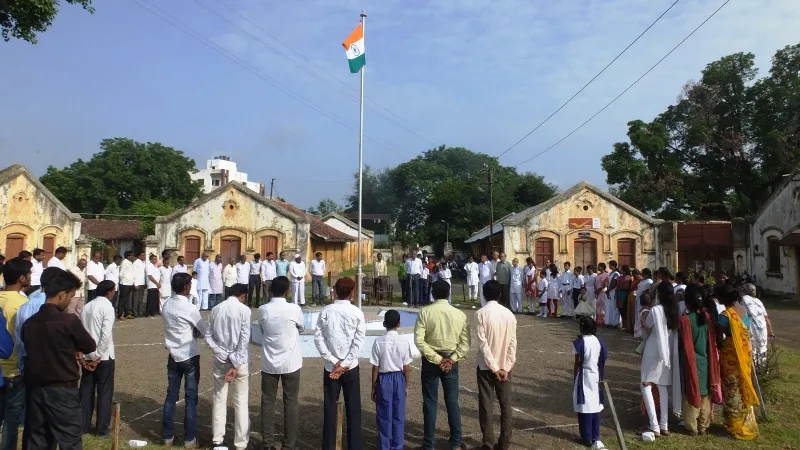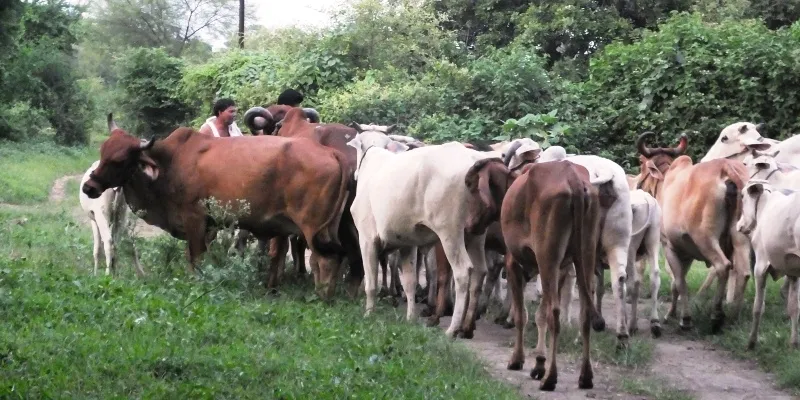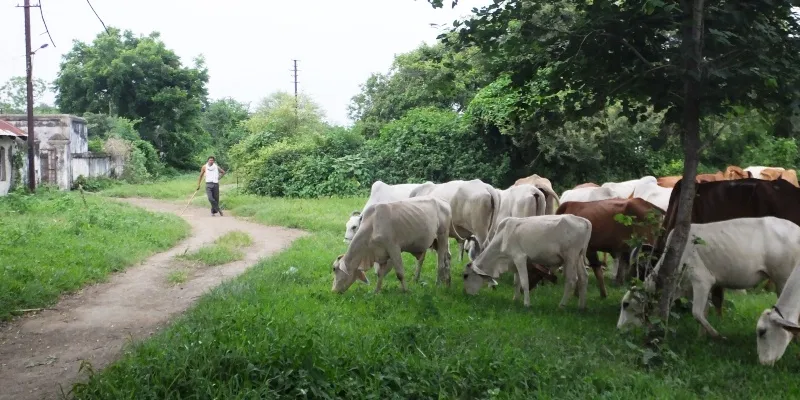Battling farmer suicides in Vidarbha: an 83-year-old organisation carries the legacy of India’s freedom movement
Vinoba Bhave founded Gram Seva Mandal back in 1934. The organisation stays true to its cause of self-sufficiency and swarajya even today.

Cotton was first grown in the Indian subcontinent. The earliest evidence of cotton, which dates back to the Neolithic age (6000-5000 BC), was found in the ruins of Mehrgarh (present Pakistan) and Rakhigarhi (present Haryana). Even today, India holds the distinction of being the largest producer of cotton in the world, accounting for over one-fourth of its global production.
Maharashtra, with Vidarbha region as the epicentre, accounts for over 10 percent of the world’s area under cotton cultivation. Despite increasing yield and growing market share over the past decade, Vidarbha’s cotton farmers have suffered the harshest pangs of rising inequality in India.
Over the past decade, the 11 districts of Vidarbha have witnessed over 1.4 lakh farmer suicides. Karuna Futane (59), Chairperson of Gram Seva Mandal, an NGO based out of Wardha in Vidarbha sheds light,
“The main cause behind this is the centralised textile industry. The mill owners decide the price of cotton and the farmer has no option but to accept it. Mill owners purchase materials from cheaper sources — be it from the country or from abroad.”
Typically, a mill uses cotton from over 350 villages. The final cloth, thanks to the mechanised methods and automation, is much cheaper than handloom or khadi. “While both the mill companies and consumers are benefitted in the process, it is the farmer who pays the real cost,” Karuna adds.

The spinning wheel
Back in 1934, Vinoba Bhave and his path mates founded Gram Seva Mandal in Nalwadi village, near Wardha city. Mahatma Gandhi had given the call of ‘Let’s go towards village,’ and Vinoba Bhave, then 39 years old, along with his comrades started using the spinning wheel as a weapon for self-sufficiency and rural empowerment.
The wheels were set in motion as Vinoba found support from young men and women who joined his cause and built Nalwadi into a model village. Nalwadi soon became sufficient in terms of food, clothing, and started producing small machineries for the cottage industries of nearby areas.
Nalwadi’s success boosted their moral further. The initiative received monetary help from Jamnalal Bajaj, Founder of Bajaj Group and a freedom fighter. Mahatma Gandhi also helped with raising funds for the cause.
Soon, more land was bought on the road that connected Wardha and Nagpur, and a village was built for artisans and activists who could live and collaborate. “The village was named ‘Gopuri’ by Gandhiji, had some small-scale industries and a goshala (byre)” Karuna tells us.
The unique architecture of Gopuri remains the legacy of the historic movement for independence. The Gram Seva Mandal has witnessed 83 years of everyday struggle, as it continues to support farmers in their contemporary struggles.

Self-sufficiency is the key
The organisation works with farmers and villagers engaged in agriculture, cloth making, and oil extraction. “We also make different types of charkhas and machinery needed for gramodyog (cottage industry),” Karuna tells us. She adds,
“Our activists and volunteers, with Gopuri as their base, visit nearby villages and engage with the farmers. Their aim is to understand the issues faced by village communities and help them resolve them through collective action and gramodyog (cottage industry).”
Gram Seva Mandal does farming on around 40 acres of land following organic farming principles — it uses pure, indigenous seeds. The farmers here prepare their own seeds and do not rely on hybrid, genetically modified or terminator seeds sold by big corporations in the markets.
We spoke with Akash Naoghare (26), who has been volunteering for Gram Seva Mandal since 2014. He is currently working on ‘Cotton to fabric’, a project where cotton is bought directly from farmers and the final cloth is given back to them, leading to higher minimum support price (MSP) of the produce. “Last year when the MSP of cotton in Maharashtra was around Rs 4,100, we gave our farmers around Rs 6,000 per quintal. Two hundred families worked with us for the initiative,” Akash tells us.
Similarly, Gram Seva Mandal has separate departments for spinning, weaving, bleaching, and dying. The organisation also has three selling centers, one at Gopuri and two in Wardha city. “We sell readymade shirts, dresses, cut pieces, hand stitched bags. We also buy khadi cloth from various sister organisations, but only after strict quality check. It helps us with greater variety of choices for our customers,” Karuna tells us.
Gram Seva Mandal also runs an oil press centre. The oilseeds used in the process are grown organically and purchased from nearby villages, supporting nearly 150 farmers. “Presently, we have groundnut, coconut, linseed, mustard, and sesame oil available at reasonable price,” she adds.
The goshala started by Vinoba Bhave today houses 48 desi cows and bulls feeding on healthy organic fodder. “We are raising funds to reconstruct the goshala so as to make efficient use of cow urine and dung for organic farming. We would like to make this place a research hub for youngsters who believe in sustainable development and Gram-swaraj,” Karuna says.

Make villages great again
“The key to the agrarian crisis is solving two larger pieces of the puzzle," Karuna says. She explains,
“A farmer has no control over the prices of the commodities he buys in the market. She also does not have any control over the price of the produce. Is it a fair way to run a system on which 50 percent of the country’s workforce depends?”
Read More -
Five ways to lead a green life: easy ideas to reduce plastic use
16-year-old Bengaluru boy is an organic farmer and a YouTube teacher
Akash discusses with us in detail, how it is important at the policy level to implement the recommendations made by the Swaminathan committee. “While Gram Seva Mandal has been doing great work in making the farmer self-sufficient, the larger initiatives need to come from the government,” he tells us.
The committee, chaired by Prof. M. S. Swaminathan, had recommended a holistic national policy for farmers. The suggestions made by the committee included land reforms, food security, credits and crop insurance, a gradual increase in irrigation budget, and safeguarding agricultural land and forest from non-agricultural corporate interests. The report, submitted in 2006, hasn’t been implemented yet. Akash adds,
“Providing insurance to farmers, educating them about water and soil health, encouraging mixed cropping, and organic fertilisers made from cow dung and composting are simple solutions and can be implemented easily by the government. The plight of the farmers needs to be taken more seriously.”
Enter the SocialStory Photography contest and show us how people are changing the world! Win prize money worth Rs 1 lakh and more. Click here for details!







